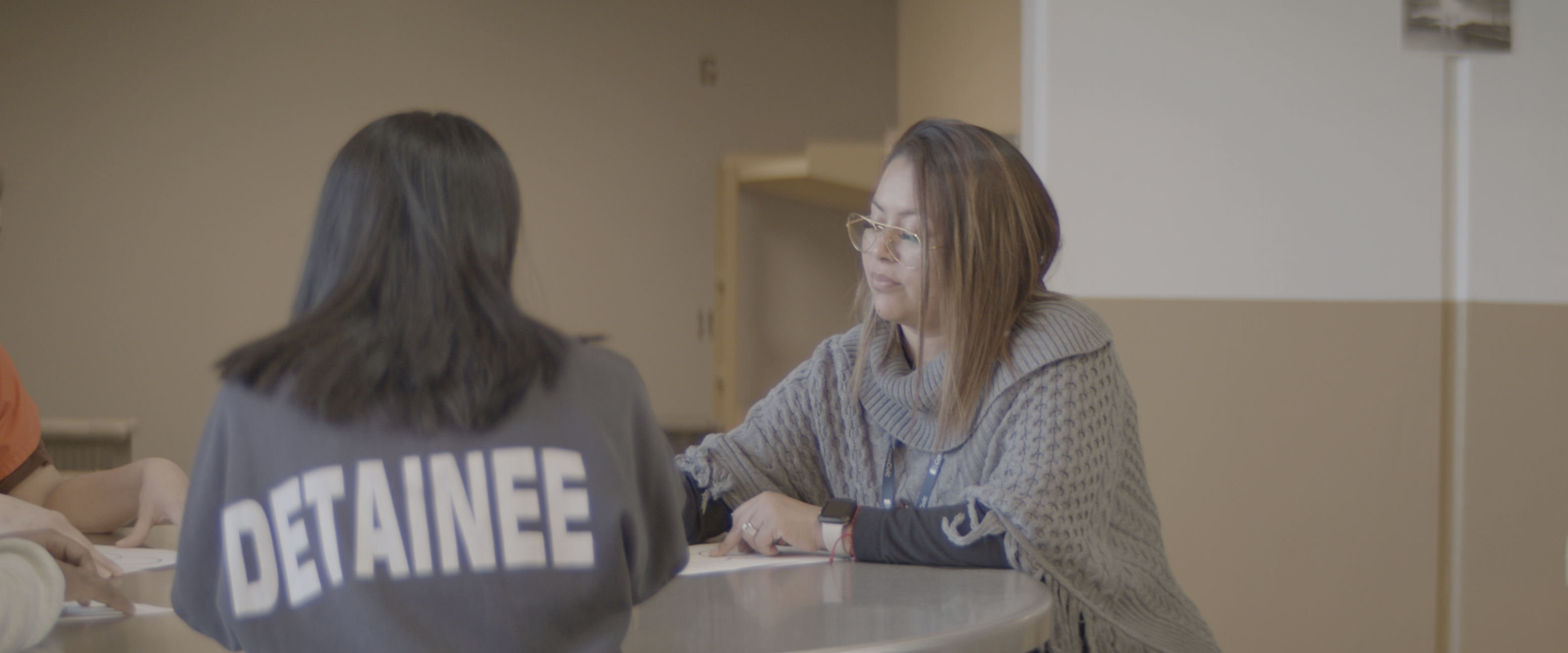
Since our founding, CoreCivic has been committed to professionalism and to upholding the rights of our employees and those in our care. This commitment is central to the values that guide our business and operational strategy.
While respecting human rights has always been an intrinsic part of CoreCivic's operations, protections historically were codified in policies that addressed specific legal rights or behavioral expectations. That changed in 2013, when the company adopted a broad, formal policy statement to articulate its management approach to human rights and more fully take into account international human rights standards and norms in addition to U.S. constitutional and legal standards.
Since 2013, our focus has been on embedding human rights into our culture. We have incorporated our human rights commitments into our Code of Ethics, made human rights training an annual requirement for all of our employees, established experience or expertise with human rights as a criterion for prospective members of our board of directors and tied human rights performance to compensation for our executives.
More recently, in December 2021, our Board of Directors adopted a new, updated Human Rights Policy to more fully express our human rights values and to provide a roadmap for future implementation of our human rights commitments.
"The new policy represents an important step in our company’s journey and is part of our ongoing drive to be a better, more ethical organization," said Scott Craddock, chief ethics and compliance officer. "These commitments benefit our employees, the residents in our care, the government partners we serve, and the communities, systems, and industries in which we operate."
Human Rights Risk Assessment
Our commitment to continuous improvement and ongoing evaluation of our approach to human rights is exemplified by the human rights risk assessment we conducted in 2019. Conducted with a leading human rights consultant using the United Nations (UN) Guiding Principles Reporting Framework, the risk assessment identified an opportunity to strengthen our human rights commitment by adopting a more comprehensive human rights policy. A detailed summary of our risk assessment is available here.
The resulting revised human rights policy was informed by internal and external stakeholders, the same consultant, and the UN's "A Guide for Business: How to Develop a Human Rights Policy." It also addressed the elements identified as lacking in the original human rights policy. For instance, the human rights statement, according to the findings of the assessment, needed to more clearly identify the most salient human rights in CoreCivic's operations and provide information on how the company would implement its commitment to human rights. Those findings, among others, have been addressed in the revised policy. For a more complete understanding of the background and approach to the new policy, along with a preview of next steps in the process please read more here.
Training
Learning and development opportunities help employees make the connection between our policies and human rights issues. New employees receive training on our human rights policy as a part of pre-service training, and returning employees receive human rights training on an annual basis. In 2021, more than 97 percent of our returning employees completed human rights training.
Assessments
In conjunction with a leading consultancy, CoreCivic developed a process to conduct human rights assessments at the facility level to account for variations among facility missions within the company. The assessments included multiple days of interviews with staff and residents at those facilities. The information gained from these assessments help the Ethics and Compliance team understand how best to focus our efforts. Additional facility-level assessments will be conducted in 2022 using the model piloted in 2021.
Stakeholder Feedback
As part of our human rights work, we consulted with several outside groups dedicated to raising awareness and strengthening advocacy for human rights issues. Their feedback has been invaluable in ensuring our human rights policy is well-developed and focused on long term outcomes.
"Our cadre of faith-based investors has been in regular dialogue with CoreCivic staff for the last 10 years about the adoption and implementation of a human rights policy," said Mary Baudouin, provincial assistant for Justice and Ecology, Jesuits of the U.S. Central and Southern Province. "We are pleased with this newly revised policy and the ways that CoreCivic has committed to implementing the policy through training, risk assessment, and transparent reporting at all levels of the company. We believe that the processes and instruments CoreCivic is developing are breaking new ground in the areas of human rights risk assessment in the corrections field at a time when this is sorely needed–and desired–by investors, contractors, citizens, and especially by residents and their families."
Looking Ahead
While there were several updates to the guidance, the basic principles of CoreCivic's Human Rights Policy remain the same - the belief that all people are born free and equal in dignity and rights; human rights are derived from the inherent dignity of the human person; and detained and justice-involved persons retain their inherent dignity and other human rights that require respect and protection.
"If we are going to deliver on our mission, then protecting human rights must come first," said Damon Hininger, president and CEO, CoreCivic. "It is the foundation upon which our ability to better the public good is built."
